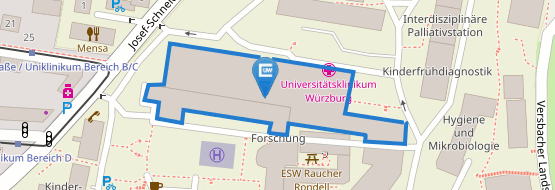Proteins in Cell-Cell Interactions and Motility
Interactions between cell surface proteins and molecules in the extracellular space as well as regulation of the cytoskeleton determine the adhesion and motility of cells. Cell adhesion and migration are central to diverse homeostatic processes – for example mounting an effective immune response or repairing injured tissues. Failure of cells to migrate or migration of cells to aberrant locations is intricately involved in many pathologies, such as vascular and inflammatory diseases, or tumor formation and metastasis.
Several target proteins have been identified at the Rudolf Virchow Center that regulate the interactions of a cell with its microenvironment. The Center has also developed methods to visualize, analyze, and manipulate these dynamic processes from single molecules to protein complexes, and from cultured cells to living animals. To assess the potential importance of candidate proteins that may be relevant to preventing or treating major diseases, in vivo mouse models of cardio- and cerebrovascular diseases, (auto-)immune disorders, and malignant tumors have been established. Together, this multidisciplinary approach not only provides fundamental insights into the biology of cell-cell interactions, but also helps identify target proteins that hold promise for developing new therapeutic strategies.
Groups in this Research Field:
- Katrin Heinze
- Bernhard Nieswandt
- Grzegorz Sumara


